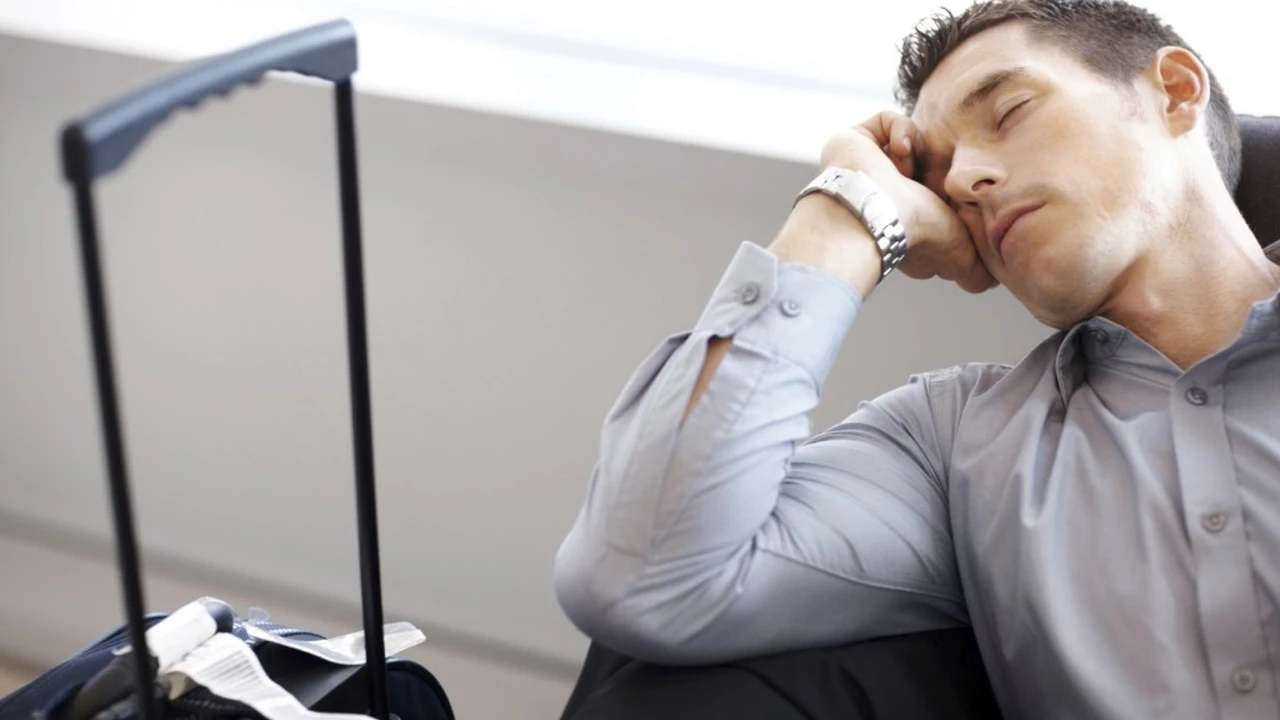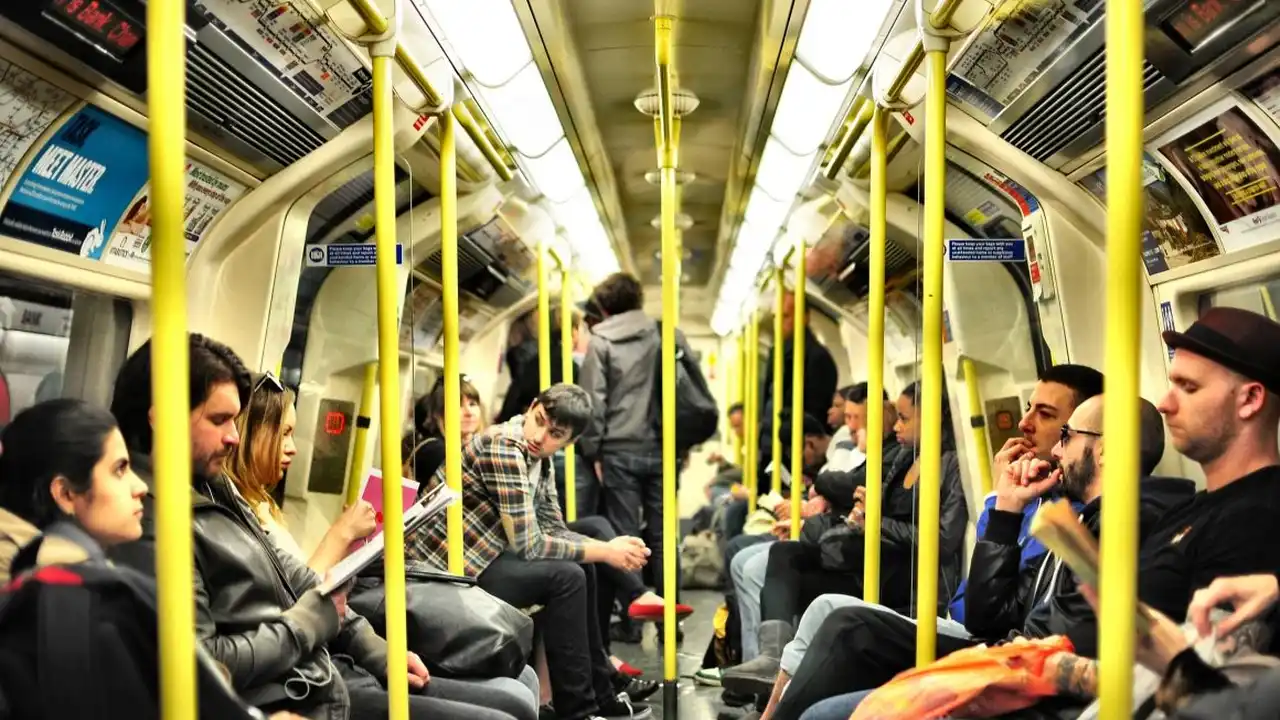Europe Travel: Dealing with Jet Lag for US Tourists
Sample meta description.

Understanding Jet Lag Causes and Symptoms for a Smooth European Vacation
So, you're finally heading to Europe! Dream vacation, right? Except for that pesky jet lag. Let's be real, crossing multiple time zones can turn the first few days of your trip into a blurry, exhausted mess. But don't worry, we're here to help you conquer jet lag and make the most of your European adventure. First, let's understand what's actually going on. Jet lag isn't just feeling tired. It’s a disruption of your body's natural sleep-wake cycle, also known as your circadian rhythm. When you travel rapidly across time zones, your internal clock gets thrown off, leading to a mismatch between your internal time and the external environment. This mismatch manifests in various unpleasant symptoms.
Common symptoms include fatigue, insomnia (trouble falling asleep or staying asleep), difficulty concentrating, digestive problems (like constipation or diarrhea), headaches, and even mood changes. Basically, your body is confused and trying to adjust to a new schedule. The more time zones you cross, the more severe the jet lag is likely to be. Traveling eastward (e.g., from the US to Europe) is generally considered worse than traveling westward because it's harder for your body to advance its internal clock. Think of it like trying to wake up earlier than usual versus sleeping in – waking up early is usually the tougher challenge.
Pre-Trip Preparation The Key to Minimizing Jet Lag on Your Europe Trip
The fight against jet lag starts *before* you even board the plane. Think of it as preparing your body for the time zone leap. Here's a breakdown of pre-trip strategies:
- Gradual Adjustment: A few days before your trip, start shifting your sleep schedule gradually. If you're traveling east, try going to bed and waking up an hour or two earlier each day. If you're traveling west, do the opposite. Even a small adjustment can make a big difference.
- Optimize Your Sleep Environment: Make sure your bedroom is dark, quiet, and cool. Use blackout curtains, earplugs, or a white noise machine to create a conducive sleep environment. Avoid caffeine and alcohol close to bedtime.
- Strategic Caffeine Consumption: If you're a regular coffee drinker, try to adjust your caffeine intake in the days leading up to your trip. Avoid caffeine in the afternoon and evening to improve your sleep quality.
- Hydration is Key: Dehydration can worsen jet lag symptoms. Drink plenty of water in the days leading up to your trip and avoid excessive alcohol consumption.
- Exercise Regularly: Regular physical activity can improve your sleep quality and help your body adjust to new time zones. However, avoid intense workouts close to bedtime.
In-Flight Strategies for Combating Jet Lag During Your European Flight
The flight itself is a crucial battleground in the war against jet lag. Here's how to make the most of your time in the air:
- Set Your Watch: As soon as you board the plane, set your watch to the local time of your destination. This will help you mentally adjust to the new time zone.
- Stay Hydrated: Airplane air is notoriously dry, which can exacerbate jet lag symptoms. Drink plenty of water throughout the flight. Avoid alcohol and sugary drinks.
- Move Around: Sitting for long periods can contribute to fatigue and stiffness. Get up and walk around the cabin every few hours to improve circulation. Do some simple stretches in your seat.
- Adjust Your Eating Schedule: Try to eat meals according to the local time of your destination. If it's dinnertime in Europe, eat a meal, even if you're not hungry. Avoid heavy meals close to bedtime.
- Consider Sleep Aids: If you have trouble sleeping on planes, consider using a sleep aid. Melatonin is a natural hormone that can help regulate your sleep-wake cycle. Over-the-counter sleep aids like Benadryl can also be helpful, but be aware of potential side effects. Consult with your doctor before using any sleep aids.
- Eye Mask and Earplugs: These are essential for blocking out light and noise, creating a more conducive sleep environment on the plane.
Post-Arrival Recovery Tips Acclimatizing to European Time Zones
You've landed in Europe! The real work begins now. Here's how to help your body adjust to the new time zone:
- Embrace the Daylight: Exposure to sunlight is one of the most effective ways to reset your circadian rhythm. Spend as much time outdoors as possible during the day. Even on cloudy days, the natural light can help.
- Stick to a Schedule: Try to stick to a regular sleep-wake schedule, even if you're not feeling tired. Go to bed and wake up at the same time each day, even on weekends.
- Resist the Urge to Nap: Napping can disrupt your sleep schedule and make it harder to adjust to the new time zone. If you must nap, limit it to 20-30 minutes and avoid napping in the late afternoon or evening.
- Stay Active: Exercise can help you feel more awake and improve your sleep quality. Go for a walk, explore the city, or hit the gym.
- Hydrate and Eat Healthy: Continue to drink plenty of water and eat healthy meals. Avoid processed foods, sugary drinks, and excessive alcohol consumption.
- Consider Melatonin: Melatonin can be helpful in the first few days after arrival to help you fall asleep at the desired time. Take it a few hours before bedtime. Consult with your doctor before using melatonin.
Specific Product Recommendations for Jet Lag Relief
Here are some specific product recommendations to help you combat jet lag, along with their uses, comparisons, and price ranges:
Sleep Masks
Use Case: Blocking out light on the plane and in your hotel room to promote better sleep.
- Manta Sleep Mask: (~$35) A premium sleep mask with adjustable eye cups for a customized fit. Great for side sleepers and those who need complete darkness.
- Alaska Bear Natural Silk Sleep Mask: (~$10) A more affordable option made from soft silk. Comfortable and lightweight.
Comparison: Manta offers superior light blocking and customization, while Alaska Bear is a budget-friendly and comfortable choice.
Earplugs
Use Case: Reducing noise on the plane and in your hotel room to improve sleep quality.
- Mack's Pillow Soft Silicone Earplugs: (~$5) Moldable silicone earplugs that conform to the shape of your ear. Excellent noise reduction.
- Bose Sleepbuds II: (~$250) A high-end option that plays soothing sounds to mask noise. Requires a smartphone app.
Comparison: Mack's are an affordable and effective option for basic noise reduction, while Bose Sleepbuds II offer advanced features and sound masking technology.
Melatonin Supplements
Use Case: Regulating your sleep-wake cycle and promoting sleepiness.
- Natrol Melatonin Fast Dissolve Tablets: (~$10) A popular and affordable option that dissolves quickly under your tongue.
- Nature Made Melatonin Gummies: (~$15) A tasty and convenient way to take melatonin.
Comparison: Both options are effective, but the gummies may be more appealing to those who don't like taking pills.
Hydration Solutions
Use Case: Maintaining proper hydration levels during and after your flight.
- Electrolyte Powder Packets (e.g., Liquid I.V., Hydralyte): (~$25 for a pack of 30) Add to water for enhanced hydration and electrolyte replenishment.
- Reusable Water Bottle (e.g., Hydro Flask, Nalgene): (~$30-50) Bring your own water and refill it throughout your journey.
Comparison: Electrolyte powder packets provide extra hydration and electrolytes, while a reusable water bottle is a sustainable and cost-effective way to stay hydrated.
Light Therapy Lamps
Use Case: Mimicking sunlight to help reset your circadian rhythm, especially helpful in the mornings.
- Verilux HappyLight Liberty VT20: (~$40) A compact and portable light therapy lamp.
- Carex Day-Light Classic Plus: (~$80) A larger and more powerful light therapy lamp.
Comparison: Verilux is more portable and affordable, while Carex offers a stronger light intensity.
Navigating European Travel Tips and Tourist Tips for a Great Trip
Beyond the jet lag, here are some extra travel tips to make your European adventure even smoother:
- Learn Basic Phrases: Knowing a few basic phrases in the local language (e.g., "hello," "thank you," "please") can go a long way.
- Be Aware of Scams: Be vigilant about potential scams, especially in touristy areas. Watch out for pickpockets and be wary of overly friendly strangers.
- Pack Appropriately: Research the weather conditions in the regions you'll be visiting and pack accordingly. Layers are always a good idea.
- Use Public Transportation: Public transportation is often the most efficient and affordable way to get around European cities.
- Book Accommodation in Advance: Especially during peak season, it's wise to book your accommodation in advance to secure the best deals and availability.
- Inform Your Bank: Let your bank know that you'll be traveling abroad to avoid any issues with your credit or debit cards.
- Download Offline Maps: Download offline maps of the areas you'll be visiting in case you don't have access to internet.
- Embrace the Culture: Be open to new experiences and embrace the local culture. Try new foods, visit local markets, and attend cultural events.
Enjoy Your European Adventure!
With a little planning and preparation, you can conquer jet lag and have an amazing time exploring Europe. Safe travels!
:max_bytes(150000):strip_icc()/277019-baked-pork-chops-with-cream-of-mushroom-soup-DDMFS-beauty-4x3-BG-7505-5762b731cf30447d9cbbbbbf387beafa.jpg)






